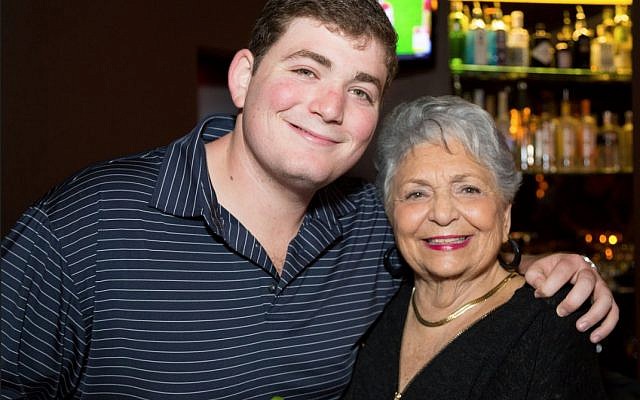A Stolen Son
Steven Waronker, MD, shares his personal experience with the opioid crisis.
The following essay comes from Steven Waronker, chief of anesthesiology for Emory Speciality Associates. Having lost his son to an opioid overdose, Waronker asks, “What’s being done now to stop this, and what more can we do?”

After five years of hoping, and ultimately in vitro fertilization, our Brian joined the family. Five years younger than his brother, Jeffrey, he was our “easy” son.
He was mellow at age two. He grew quickly and was off the charts in height, weight, and smile size. He was truly a gentle giant at six-foot-five and 250 pounds. He was focused only on becoming a future Georgia Bulldog when college time came around. He loved to eat at newly found multiethnic food restaurants in every nook and cranny of Buford Highway.
He was our Bri Bri until his senior year of high school, when things changed. The smiles became fewer and he hung around with a wilder crowd. We didn’t learn until freshman year at his beloved UGA that he had become hooked on opiates after surgery in his junior year of high school. He got help and did great for more than five years. He graduated from Kennesaw State, had a great job, and was loving life.
On December 29, 2017, he was all packed to go to L.A. to see the Dawgs play in the Rose Bowl when he took multiple Oxycontins and never woke up.
As we prepared for the funeral, the rabbi asked me what he could share with the friends and family. I said, everything. He was astonished and happy he could talk about the opiate epidemic and acknowledge openly that it’s what took our beloved Brian at such a young age.
I am a physician of 30 years, and I did a lot of pain management in my early career. I’ve also personally experienced excruciating physical pain for long stretches, often at a level of 10 on a 10-point scale due to two major lumbar spine surgeries and a host of related procedures.
At any time, I could easily have prescribed long-acting opiates for my patients’ pain, and asked my treating physicians to do the same for me. But for 99 percent of patients, myself included, there is zero need for any of these long-acting, sustained-release addictive narcotics.
Zero. So why do we have a 99 percent abuse problem?
There is no single cause for the opioid epidemic, but the abuse—and the addiction that almost inevitably follows—starts with prescription medications. High school and college kids usually get their first samples from a prescribing doctor, their mom and dad’s medicine chest, or from some opportunistic dealer who preys on poor people that he convinces to fill their own scripts for profit, not pain. Certainly, heroin and fentanyl are components of this crisis, but they often come after access to pills has been reduced and street costs have gotten too expensive. What’s being done now to stop this, and what more can we do?
Lately, media outlets have been shining a revealing light on the harrowing realities of this crisis. At the same time, more and more brave men and women are standing up for ethics and morals, at the risk of their own livelihoods, by becoming whistleblowers and exposing dubious, unethical, and perhaps illegal practices in the pharmaceutical industry.
Thanks to them, we are now more seriously questioning why opioids are so widely available to those suffering from addiction. There are many who desperately want to stop, but simply cannot in a world of such plenty. We ask how “big pharma” distributors can, in good conscience, ship huge quantities of pain pills to small towns, knowing the ultimate destinations will be big city streets. Where is the justice as pharmaceutical profits soar into the billions, at the expense of more than 50,000 innocent lives lost every year to addiction and abuse?
I could not be more grateful that questions like these are finally being asked so publicly. It will take the best-in-class of the departments and agencies of the FDA, HHS, and DEA to turn off the spigot of this poison. Our elected officials will have to commit to putting the right laws and regulations in place. This will require tremendous willpower—standing tall and not acquiescing to the huge and diverse pharma lobbyists. Talented class-action trial attorneys need to continue plowing forward relentlessly. And it will take you and me to support them all.
Our society deserves better. We deserve better. My beautiful Brian certainly deserved better.




comments